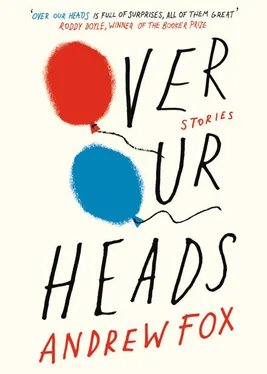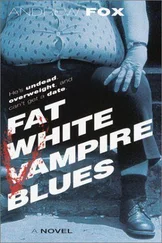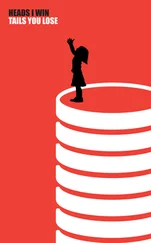I wake before the breakfast service and sneak back out the staff entrance. Overnight, the snow has come on heavy and now it lies in deep drifts over the parking lot. I wade downtown and back for coffee and sit with it in the locker room until Luis comes in looking rumpled. He takes his coffee without a word and leads us to the lobby to await the new armoires’ arrival. Outside, city ploughs struggle to clear and salt the way.
The truck rounds the corner and skids to a halt at the forecourt. Its tyres crunch and its lights blink as Luis backs it in to the goods entrance. The deliverymen, Baptiste and Kenny, have an invoice for Agnes to sign.
‘This is a nice hotel,’ says Baptiste, whose sinewy arms are bare even in this weather.
‘Real nice,’ Kenny says and whistles through a gap in his teeth.
The new armoires are built of marbled walnut and intricately carved, with brass inlays and smooth-running drawers and recessed rails for hangers. They are heavier than the old ones and their joints are more secure. Baptiste and Kenny take half and Luis and I take half. Randy joins us midway through the morning and rolls up his greasy sleeves.
Once the new armoires have all been put in place, Agnes gives Baptiste and Kenny her best directions back to the highway; and Randy, Luis and I take the elevator to the roof to think over how we’ll dispose of the old ones tomorrow. As we rise, I hope that the canopy legs have snapped overnight from the weight of snow. I picture half a foot’s accumulation hugging the shapes of the broken and the whole alike. But when the doors open, I see that all is as we left it. The canopy sags, its legs buckle and bend — but it holds strong yet. And beneath it the armoires wait, clean and cold to the touch. Randy takes a broom from the stairwell and jabs it into the canopy’s belly. Hunks of snow fly skyward and break apart and float in dust to the street below.
There will be no fresh starts for me, I realize. But there will be starts.
Open your eyes. Unclench your teeth. Relax your grip on the armrest. Take your iPod and your bad novel from the seat pocket in front of you. Queue in the aisle. Smile at the air hostess. Make eye contact. Say thanks.
Feel the damp air test your lungs as you step out on to the jetway. Resist the urge to punch the Yorkshireman with the meaty neck who dawdles in your path and is complaining already to his tiny wife about mobile phone reception. Take the stairs, traipse the corridors, follow the signs. Be patient.
Hurry through baggage collection and out into Arrivals, past the crowd of faces all disappointed at the sight of you. Head outside for the taxi rank. It’s cold but brilliantly bright and for a moment you’re blinded but then your vision clears and you can see that the place is just as you left it.
Direct the taxi driver past the cricket club and under the railway bridge, this way around the roundabout, that way at the crossroads. Watch the old man who laid your mother’s patio limp along in step with his dog, and two women — friends of your mother’s — stoop to admire the Council flower beds.
Arrive at your estate. Pay the taxi driver and stand for a moment to savour two rows of identical white houses. Walk the driveway. Use your key in the lock. Call out to your mother and hear her bustle in from the back garden where she has been hanging washing. Her sweatshirt sleeves are baggy with used tissues. Her open sandals reveal long toenails painted red.
‘Let me look at you,’ she says as she holds you by the shoulders and frowns. ‘You’ve not been eating well.’
Hug your mother. Feel her softness and her new frailty but tell her that she looks good.
‘Dad’s just gone out for the messages,’ she says as she leads you to the kitchen and starts taking condiments from the fridge. ‘But he’ll be back soon.’
Look out the window at the washing line your mother has abandoned: her flannel shirts, your father’s colourless Y-fronts, their bed sheets filling with the wind like sails.
Clean your plate into the bin. Feel pudding on toast and four cups of milky tea drop like a stone into your stomach. Thank your mother. Go with her to the back garden and help her hang the rest of the washing. Ask while you work if there is anything else she needs doing while you’re home. Tell her the garden looks nice.
‘Ah, go on,’ she mutters around the clothes peg held between her teeth. ‘It’s a state,’ she shrugs, ‘but I’ve never the time.’ She nods towards the kitchen window and your father’s silhouette, ‘And no help.’
Sweep the leaves from the side lane. Drill holes for a hanging-basket hook. Dead-head the acanthus. Cut the grass.
‘Don’t belabour yourself on my account,’ your mother says as she stands over you where you are weeding, holding a strimmer ready in her hand.
Tell her, ‘It’s no problem at all.’
‘Well then, suit yourself.’
In the driveway next door, your neighbour Theresa is climbing out of her car. ‘Ah, you’re not putting him to work already, are you?’ she says, her tongue curling over her upper lip as she winks at you in conspiracy.
Your mother measures a laugh. ‘Might as well get some use out of him. Do you want some help there with your shopping, while the going’s good?’
‘Nah, you’re all right,’ Theresa says, ‘I wouldn’t do that to him on his birthday.’ She hauls a bag of groceries from the boot and the new baby from the back seat. ‘Do you want to have a look at him?’ she asks and, without waiting for an answer, stands in her flower bed to dangle the baby over the wall. ‘David,’ she tells you.
Say, ‘Hi, David.’
Take the baby in your arms. He is warm and smells of milk. His eyes are clear as glass and his hands grope in the air for things you cannot see.
‘Aw,’ Theresa says, ‘he’s a natural, so he is.’ She rearranges her shopping and takes back the baby, bracing his weight against her hip and steadying him with a muscled arm. ‘Won’t be long now till he’s back with one of his own, and a little English accent on it.’
You can predict the expression on your mother’s face: there is no need to look at her.
‘A-babba, a-babba,’ Theresa says as the baby starts to scream. ‘I’ll have to talk to yous later. No rest for the bleeding wicked.’
‘Stop, sure I know,’ says your mother, who has no other children. ‘I worry about her,’ she says, when Theresa has gone. ‘And that worthless lout of a husband …’
She is still speaking but the buzz of the strimmer drowns her out. Apply yourself to your work: give the lawn a nice clean edge.
Take a shower, take a shit, shave, change your shirt. Check your watch and wonder how much longer you can leave off calling Henno and the lads. Find your father in the hallway tying his walking boots. Ask if you can come and watch him search for an answer as though the question is outrageous.
‘Sure,’ he decides. ‘The company’d be nice. The company I suppose’d be a pleasant change.’
Follow your father out the door and down the street. Match your pace to his. Smile at the neighbours to whom he waves and wait whenever he stops to talk. Study your father: the purple flesh of his jowls, the grey in his beard, the hair in his ears. Listen to the ease of his conversation. Envy his comfort in the company of other men. Follow him through the lane.
Ask, ‘So, how’ve you been keeping?’
‘Sure, I’m walking, amn’t I?’
Stop at the shop to buy cigarettes but tell your father you are planning to quit.
‘How does it feel to be turning twenty-five?’ he asks.
‘Old.’
‘It only gets worse.’
Follow your father to the coast, down the stone steps and out over the tidal plane where the sky soars heavenward and the town disappears. Feel the sand give beneath your feet and taste the salt on the wind. Stop into the Lifeboat where the barman is an old classmate of your father’s. Answer his questions about London. Laugh at his jokes. Predict tomorrow’s football scores.
Читать дальше












